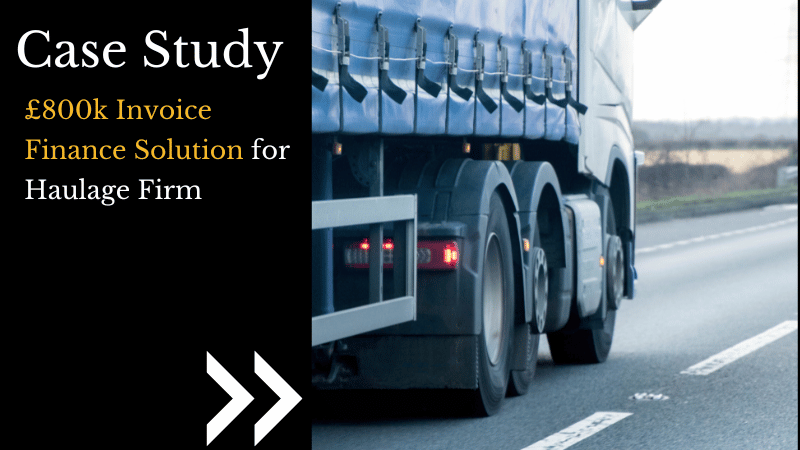Categories
Recourse vs. Non-Recourse Factoring: A UK Guide

Invoice factoring is a common and effective method of smoothing cash flow while waiting for income during the accounting strain of long payment terms.
Designed as a method to release funds as soon as an invoice has been generated, factoring support is used by companies of all sizes, with revolving credit facilities regularly drawn from when needed.
However, much confusion still occurs when understanding the essentials of this type of finance, no less when considering recourse factoring over non-recourse factoring.
What is the difference, and how does it impact your business? At Clifton Private Finance, we have the answers.
An Overview of Invoice Factoring
Invoice factoring is one of the two main forms of invoice finance - funding specifically developed to help businesses bridge the gap between an invoice being issued and receiving payment.
Even strong, profitable businesses face liquidity issues when clients pay on long terms. Standard 30-day terms are now being stretched to as much as 120 days in many UK B2B arrangements, leaving product and service suppliers with potential delays of four months between invoice date and cash in the bank.
Able to be set up as a revolving credit facility to allow for smooth cash flow throughout the year, invoice factoring is a common method for accessing future funds for businesses of all sizes - not because businesses are struggling, but because it frees capital for reinvestment sooner, allowing for faster expansion and taking advantage of opportunities as they occur.
Recourse vs. Non-Recourse Factoring
One of the questions that occurs when exploring invoice factoring is ‘who chases the bill?’
Because factoring involves the sale of your debt to a third-party factoring company, many people make the assumption that the whole process of collection and recovery is now out of their hands.
However, that isn’t strictly the case. In many factoring situations, the onus remains on you to chase any late or unpaid debt, ensuring that the money finds its way into the hands of the factoring company.
In these cases, the factoring company has advanced you the money, but does not take on the responsibility of debt management and collection.
This is called recourse factoring. The action of recovering the money remains with the originator of the invoice.
The opposite is non-recourse factoring. Here, the responsibility of collecting the payment is turned over in its entirety to the factoring company.
Advantages and Disadvantages of Recourse and Non-Recourse Factoring
There are pros and cons to both sides of the arrangement.
Risk and Costs
The risks associated with the debt move with the recourse. While that remains with the supplier company (you), the risk to the factoring company is lowered. You effectively guarantee that they will get their money and, should your customer fail to pay the invoice, responsibility falls on you to cover the debt.
As with all debt finance, risk plays a significant part in determining rates. For this reason, recourse factoring is cheaper and will command higher advance rates than non-recourse factoring.
Transparency
Some companies look to shield their reputation from their customers when considering invoice finance. In short, they want to utilise the service to release the funds early, but would rather the end client is unaware of it. This may be because of sensitivity in the relationships, for example, when working with larger or prestigious firms, where maintaining an impression of stability and professionalism is essential.
While there is some room for this opaque nature with recourse factoring, transparency is fully part of non-recourse factoring, with direct communication and credit control taking place between the factor and the customer.
Efficiency
Recourse factoring requires less direct involvement from the factoring company, leading to simpler administration and less paperwork. For this reason, it is often quicker to set up and process.
Credit Control Requirements
Smaller businesses may not have dedicated credit control teams, finding the resources necessary to field such expertise expensive and unwieldy. Many companies look to non-recourse factoring as a pseudo credit control system, passing risky clients and those with a history of poor payment to the factor with the express intention of reducing their credit control overhead.
This should be done with care and openness. Though it may seem convenient, a factoring company is not a debt collections agency and trying to use it as such will be more costly than employing the right agencies at the appropriate time. While a non-recourse factor will have comprehensive credit control systems in place, the terms of the agreement may not cover the full range of bad debt, with limitations in cases of customer insolvency or payment avoidance. As with all finance, selecting the correct tool for the situation is key.
Businesses that choose recourse factoring should, of course, have a sturdy system for credit control in place to meet their obligations to the factoring company, should the debt become problematic.
Customer Assessment
Factoring companies will undertake due diligence, including a credit assessment, of the customers whose invoices you are factoring. This may further impact transparency and the relationship built up between the supplier and customer.
Recourse vs. Non-Recourse Factoring Pros and Cons
|
Consideration |
Recourse Factoring |
Non-Recourse Factoring |
|
Risk of non-payment / debt collection |
Remains with the supplier |
Transferred to the factor |
|
Typical advance rate range |
80% to 90% |
70% to 80% |
|
Fees and additional costs |
Lower |
Higher (includes credit insurance) |
|
Speed of application |
Faster |
Slower |
|
Credit control |
Managed by the supplier |
Managed by the factor |
|
Transparency |
Variable |
High |
|
Best for… |
Businesses with reliable payers looking to improve cash flow |
Businesses with higher-risk clients on longer terms, wanting to offset risk |
Alternatives to Recourse and Non-Recourse Factoring
Invoice factoring fulfils a specific need for businesses to improve overall liquidity through leveraging accounts receivable as an asset, with recourse and non-recourse options tailoring the product to meet credit control and risk mitigation needs. Other alternatives exist that can help in similar ways, depending on the circumstances.
Invoice Discounting
Invoice discounting involves taking a loan that uses your accounts receivable as collateral. Though it can seem similar to factoring, it has a more typical loan-based structure, with interest based on the length of the loan.
With invoice discounting, risk remains entirely with you, the supplier, making it most similar to recourse factoring. Unlike factoring, however, it is completely opaque, with fewer credit checks on your customer and no debt management.
Early Payment Discounts and Dynamic Discounting
An early payment discount is an arrangement between you and your customer whereby you offer a clear discount on the invoice if payment is made sooner. A modern alternative is dynamic discounting, which utilises automated systems to offer a sliding scale of discount based on when in the invoice payment cycle the early payment comes, with larger discounts for earlier payments
Like invoice factoring, early payment discounts and dynamic discounting are transparent methods of smoothing cash flow. It is an excellent and simple to implement option for businesses with good relationships with their customers, with advantages to both parties: you improve your cash flow with an expedient payment, and they improve long-term finances through effectively securing a lower price for goods or services.
Credit Control and Debt Collection
If the problem lies more with the reliability and trust between you and your customers, then the answer may lie instead with a robust credit control process, backed up with the involvement of a third-party debt collection agency.
A debt collection agency will buy your bad debts from you at a discount and make independent arrangements for collection. While this discount is significant (typically far greater than non-recourse factoring), it is often better than the continued chasing of the debt and the worries that can cause.
Improving your credit control administration will not improve immediate cash flow, but it is an investment in your business that has a significant long-term impact, ensuring that future invoices are paid more quickly and avoiding expensive delays. Where invoice factoring is still required, to cut the time between issuing the invoice and receiving payment, through having an internal credit control process, you can rely on cheaper and faster recourse discounting, confident that your customers will pay when due.
Alternative Asset-Based Loans
If your business has other assets that can be used for security, you may gain through a larger loan-to-value and reduced rates and fees when comparing secured business loans with invoice factoring. Consult a Clifton Private Finance advisor to weigh up the pros and cons of these alternatives and find the best solution for your business.
Factoring in the Modern Business World
Invoice factoring has been a stable part of B2B transactions for a staggeringly long time - its origins stretch back as far as ancient Babylonian times - perhaps Gilgamesh acted as a factor for some of his subjects! As part of the established financial landscape, many ask the questions, ‘Is invoice factoring outdated?’ and ‘Why does it persist?’
For many, invoice factoring exemplifies the ‘if it isn’t broke, why fix it’ attitude. Modern technologies, however, are opening avenues that were previously impossible - such as dynamic discounting, which relies on an administrative agility that only a dedicated computerised and linked accounting system can provide.
Discussing your specific needs with a Clifton Private Finance advisor will allow us to help you efficiently, looking at the options available to you and helping you make an informed decision going forward. This may be invoice factoring, which remains robust even today. It:
- Allows customers to preserve their own working capital by pushing for longer invoice terms.
- Offers a revolving credit model that scales with your business growth.
- Provides funds without delay.
Recourse and Non-Recourse Factoring with Clifton Private Finance
Our advisors at Clifton Private Finance will discuss your factoring needs with you in depth, building a comprehensive overview of your accounts receivable to highlight the trusted income streams and those that are causing your cash flow challenges.
We can look at the benefits and downsides of both recourse and non-recourse factoring to weigh them up and ensure you are making a choice that will further your business growth and smooth cash flow for both the immediate time and long-term future.
A well-structured invoice factoring facility can help you level out seasonal fluctuations, deal with customers with extended payment terms, provide stability with irregular clients and offer support and backup with your credit control.
For a consultation, call Clifton Private Finance today.














